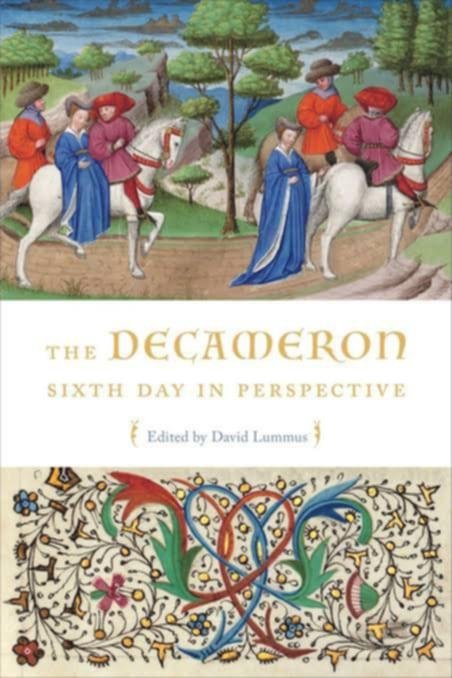A Woman’s Wit in a Man’s World: Justice and Gender in the Tale of Madonna Filippa

Introduction:
Giovanni Boccaccio’s The Decameron is a rich tapestry of medieval life, blending humor, morality, and biting social commentary. Among its many tales, the story of Madonna Filippa from Day 6, Tale 7 stands out for its progressive portrayal of female intelligence and social critique. Through the story of a woman who outwits a harsh legal system with grace and logic, Boccaccio challenges prevailing gender norms and highlights the power of rhetoric and reason. This review explores how the tale uses wit and irony to explore justice, gender, and the dynamics of power, making it remarkably relevant even today.
Summary:
In the town of Prato, Madonna Filippa is caught in an affair and brought to trial for adultery, a crime punishable by death under local law. Her husband, Rinaldo, discovers her with another man and demands justice. However, instead of denying the charges, Filippa boldly admits her actions in court but argues that the law is unjust and made without the counsel of women. She claims that she did not wrong her husband, as she never denied him intimacy, and had enough love to share. Her eloquence and logic impress the judges and townspeople so much that not only is she acquitted, but the law is ultimately repealed.
Analysis:
The Power of Eloquence and Wit:
The tale centers on Filippa’s extraordinary rhetorical skill. Unlike many medieval depictions of women as submissive or silent, Filippa stands in court and defends herself confidently and intelligently. Her wit—tempered with dignity—makes the case not only for her own life but also for broader reform. Boccaccio elevates her speech into a critique of patriarchal legal codes, subtly suggesting that laws lacking female input are inherently flawed. This emphasis on cleverness over brute force reflects a recurring motif in The Decameron—that intelligence, especially in the form of verbal dexterity, can be the most powerful tool in navigating societal structures.
Justice and Gender:
Filippa’s defense is radical for its time. In a society that largely saw women as subordinate, her argument that the law is unjust because women had no voice in its creation directly confronts the male-dominated legal system. Her case shifts the discussion from moral failure to legal fairness. Boccaccio uses the trial as a microcosm of larger societal tensions between rigid legal codes and lived human experience, especially as it affects women. That the town repeals the law following her speech suggests an idealized vision of justice—one that adapts in response to truth and reason, even when spoken by a woman.
Humor and Irony:
There is an unmistakable layer of irony in the tale. Rinaldo, the aggrieved husband, expects the court to uphold his wounded pride and punish his wife, but instead, he is made to look small-minded next to Filippa’s grace and intelligence. The story subtly mocks rigid authority figures and moral absolutists, a common thread in The Decameron. Boccaccio’s humor is gentle but effective; he invites the audience to laugh at the absurdity of laws that punish natural human desires while celebrating those who question such authority with cleverness and poise.
A Tale That Resonates Today:
Despite being set in 14th-century Italy, Filippa’s tale still resonates today, particularly in conversations around gender equality and legal reform. Her challenge to an outdated and discriminatory law mirrors modern movements that critique systemic injustices. The idea that laws should be fair and inclusive—and that those who are most affected by them should have a say in their creation—is still highly relevant. Moreover, her refusal to be shamed for her sexuality also foreshadows contemporary discussions around agency and autonomy.
Personal Response:
I found the tale of Madonna Filippa both entertaining and inspiring. Her poise and intelligence were refreshing, especially within a historical context that often denied women such attributes. What stood out most was her ability to remain calm and confident under threat of death, using logic rather than emotion to turn the tide in her favor. Boccaccio’s portrayal of her felt surprisingly modern, and I enjoyed how the story used humor to critique serious issues. It made me reflect on how much has changed—and how much still needs to change—regarding justice and gender equality.
Conclusion:
The tale of Madonna Filippa is a shining example of Boccaccio’s skill as a storyteller and social commentator. With its themes of justice, gender, and rhetorical power, it offers a timeless lesson about the importance of questioning unjust laws and listening to those traditionally silenced. In a world still grappling with issues of inequality and representation, Filippa’s story remains a powerful reminder of the enduring value of wit, courage, and eloquence in the face of oppression.







